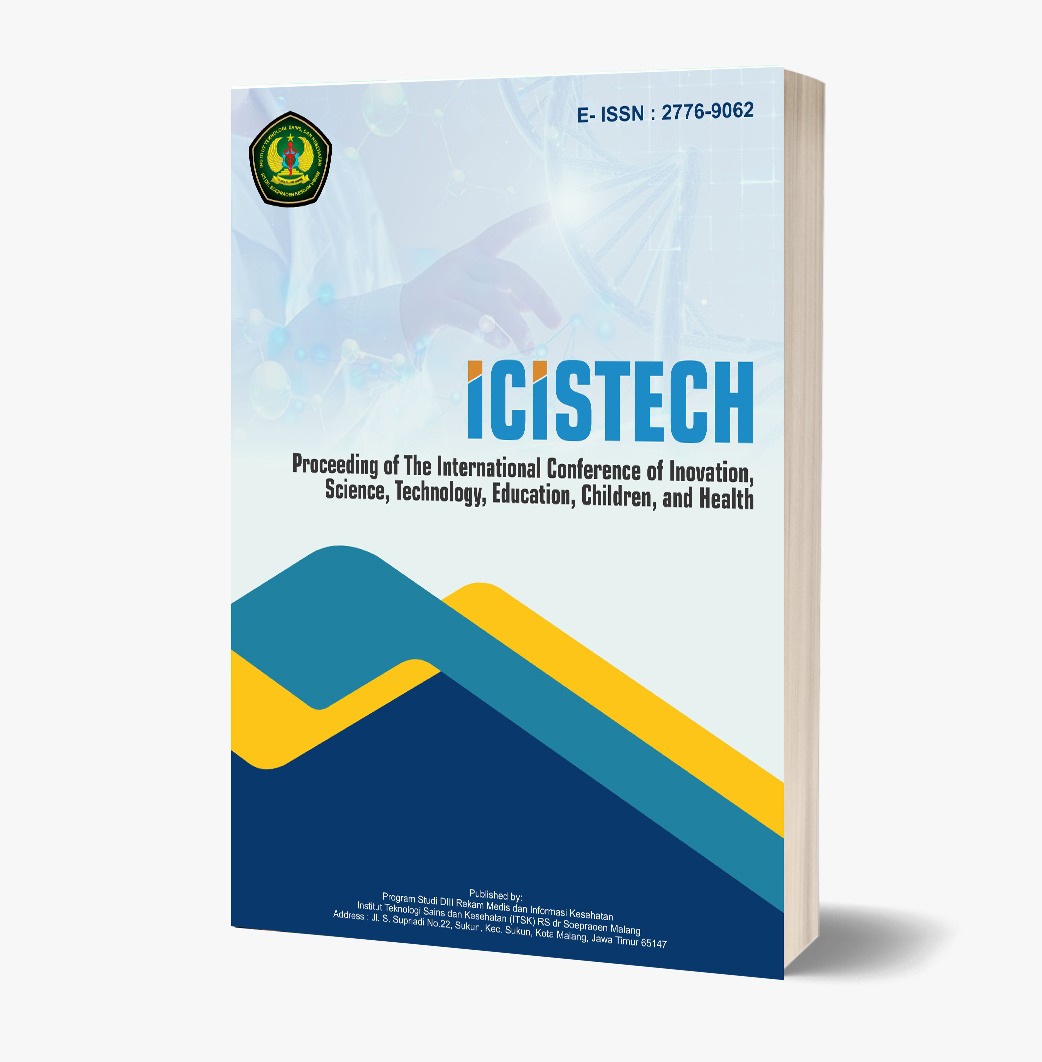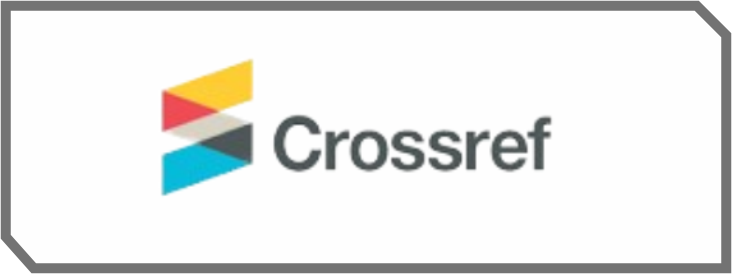Poject Based Learning: Cutting and Pasting to Increase Student Activity and Learning Outcomes in Fiqh Subjects
DOI:
https://doi.org/10.62951/icistech.v4i1.76Keywords:
project based learning, scissors and paste, student activity, learning outcomesAbstract
This study discusses the application of the Project Based Learning (PjBL) method in Fiqh learning at MI Nurussalam through cutting and pasting activities. This research is motivated by fiqh learning which has a monotonous and boring impression and low fiqh learning outcomes in grade 2 MI Nurussalam. The PjBL model involves active students, increasing students' motivation and critical thinking process. The purpose of this research is to increase the activeness of students and their learning outcomes. The research was conducted through a classroom action research approach with two cycles. The second cycle is a cycle of improvement from the reflection of the first cycle. Learning outcomes are evaluated through observation sheets. Learning outcomes and student activity increased from the first cycle to the second cycle, learning became more interactive, and the target of completeness of learning outcomes was achieved in the second cycle. Therefore, it can be concluded that the PjBL model is proven to be able to increase the activeness and learning outcomes of students at MI Nurussalam Mantingan.
References
Afni, T. N., Aslan, A., & Astaman, A. (2024). Problems of fiqh learning in class IV MIS Darul Ihsan Sepinggan after the fire for the 2022/2023 academic year. Lunggi Journal: Journal of Multidisciplinary Scientific Literacy, 2(1), 137-147.
Alemeh, S., & Gebrie, G. (2024). Social Sciences & Humanities Open, 9, 1-9. Retrieved from https://www.sciencedirect.com/journal/social-sciences-and-humanities-open
Azizah, A. N., & Wardani, N. S. (2019). Efforts to improve mathematics learning outcomes through the project-based learning model for grade V elementary school students. Journal of Educational Technology and Innovation Research, 2(1), 194-204.
Charunnisa, C., Istaryningtias, I., & Kluluqo, I. E. (2020). Teacher empowerment through classroom action research training. Journal of Community Service, 3(1), 28.
Dewanti, R., & Fajriwati, A. (2020). Demonstration methods in improving fiqh learning. PILLAR Journal: Journal of Contemporary Islamic Studies, 11(1), 88-99.
Dywan, A. A., & Airlanda, G. S. (2020). The effectiveness of STEM-based and non-STEM-based project-based learning models on students' critical thinking skills. Basicedu Journal, 4(2), 344-354.
Faizah, U. (2015). The application of a scientific approach through the project-based learning model to improve the process skills and learning outcomes of grade IV students of SD Negeri Seworan, Wonosegoro. Scholaria, 5(1), 24-38.
Fatimah, N. E., & Usman, N. (2017). Implementation of character education in fiqh learning in MI Al Islam Tonoboyo, Bandongan District, Magelang Regency. Tarbiyatuna Journal, 81, 9-23.
Fazira, Y. E., Rachmayani, I., & Aprianti, G. (2023). Improving fine motor skills through the implementation of project-based learning activities in the B-2 group of Kindergarten Negeri Pembina Mataram. Indonesian Journal of Elementary Childhood Education, 4(2), 73-82.
Hayati, M. (2019). Psychological review of fiqh understanding: The urgency of proportionality of fiqh understanding in religious life. Scientific Journal of Pedagogy, 14(1), 39-49.
Iqbal, M. (2018). The urgency of fiqh rules for the reactualization of contemporary Islamic law. Journal of EduTech, 4(2), 21-29.
Jaaska, E., Lehtinen, J., Kujala, J., & Kauppila, O. (2022). Game-based learning and students' motivation in project management education. https://doi.org/10.1016/j.plas.2022.100055
Marnewick, C. (2023). Student experiences of project-based learning in agile project management education. https://doi.org/10.1016/j.plas.2023.100096
Masykur, M. R. (2019). Fiqh learning methodology. Al-Makrifat Journal, 4(2), 31-45.
Maulidah, F., Suwatra, I. I., & Magta, M. (2018). The effect of project-based learning model on fine motor skills of group A children in cluster VI. Journal of Early Childhood Education, Ganesha University of Education, 6(2), 189-199.
Muhsin Aseri. (2022). Management of fiqh learning in schools and madrasas for Islamic religious education teachers. Al-Madrasah: Scientific Journal of Madrasah Ibtidaiyah Education, 6(2).
Nazla, S., Wahyuni, S., & Adiyono, A. (2023). Improving learning outcomes through the application of effective fiqh learning methods at Madrasah Ibtidaiyah Negeri 1 Paser. Fikruna: Scientific Journal of Education and Society, 5(2), 177-204.
Pratiwi, E. T., & Setyaningsih, E. W. (2020). Journal of Basicedu: Research & Learning in Elementary Education, 4(2), 379-388.
Rani, H. (2021). Application of project-based learning method in Islamic cultural history learning in increasing learning motivation. Journal of Reflection, 10(2), 95-103.
Rio, T. G.-d., & Rodrigues, J. (2022). Design and assessment of a project-based learning in a laboratory for integrating knowledge and improving engineering design skills. Education for Chemical Engineers, 40, 17-28. Retrieved from www.elsevier.com/locate/ece
Santos, C., Rybska, E., Klichowski, M., Jankowiak, B., Jaskulska, S., Domingues, N., & Jaou, R. (2023). Science education through project-based learning: A case study. CENTERIS – International Conference on ENTERprise Information Systems / ProjMAN – International Conference on Project MANagement / HCist – International Conference on Health and Social Care Information Systems and Technologies 2022. 1713-1720. ScienceDirect.
Setiawan, L., Wardani, N. S., & Permana, T. I. (2021). Increasing students' creativity in thematic learning using the project-based learning approach. Basicedu Journal, 5(4), 1879-1887. Retrieved from https://jbasic.org/index.php/basicedu
Sukmana, I. K., & Amalia, N. (2021). The effect of project-based learning model on increasing learning motivation and cooperation of students and parents in the pandemic era. Educational: Journal of Educational Sciences, 3(5), 3163-3172.
Wahid, A. H., & Bali, M. M. (2021). Problems of fiqh learning on students' learning interest in distance learning. Edureligia, 5(1), 1-17.
Xing, Z., & Chen, Z. (2022). A project-based approach for learning blockchain technology. 9th International Conference on Information Technology and Quantitative Management, 581-589. ScienceDirect. https://doi.org/10.1016/j.procs.2022.11.215
Yanti, R. A., & Novaliyosi. (2023). Systematic literature review: Project-based learning (PjBL) learning model for skills developed at the education unit level. Journal of Scholars: Journal of Mathematics Education, 7(3), 2191-2207.
Zafi, A. A. (2020). Students' understanding and appreciation of worship in fiqh learning at MI Manafiul Ulum Gebog Kudus. Journal of Elementary, 6(1), 47-58.
Downloads
Published
How to Cite
Issue
Section
License
Copyright (c) 2024 Proceeding of The International Conference of Inovation, Science, Technology, Education, Children, and Health

This work is licensed under a Creative Commons Attribution-ShareAlike 4.0 International License.













